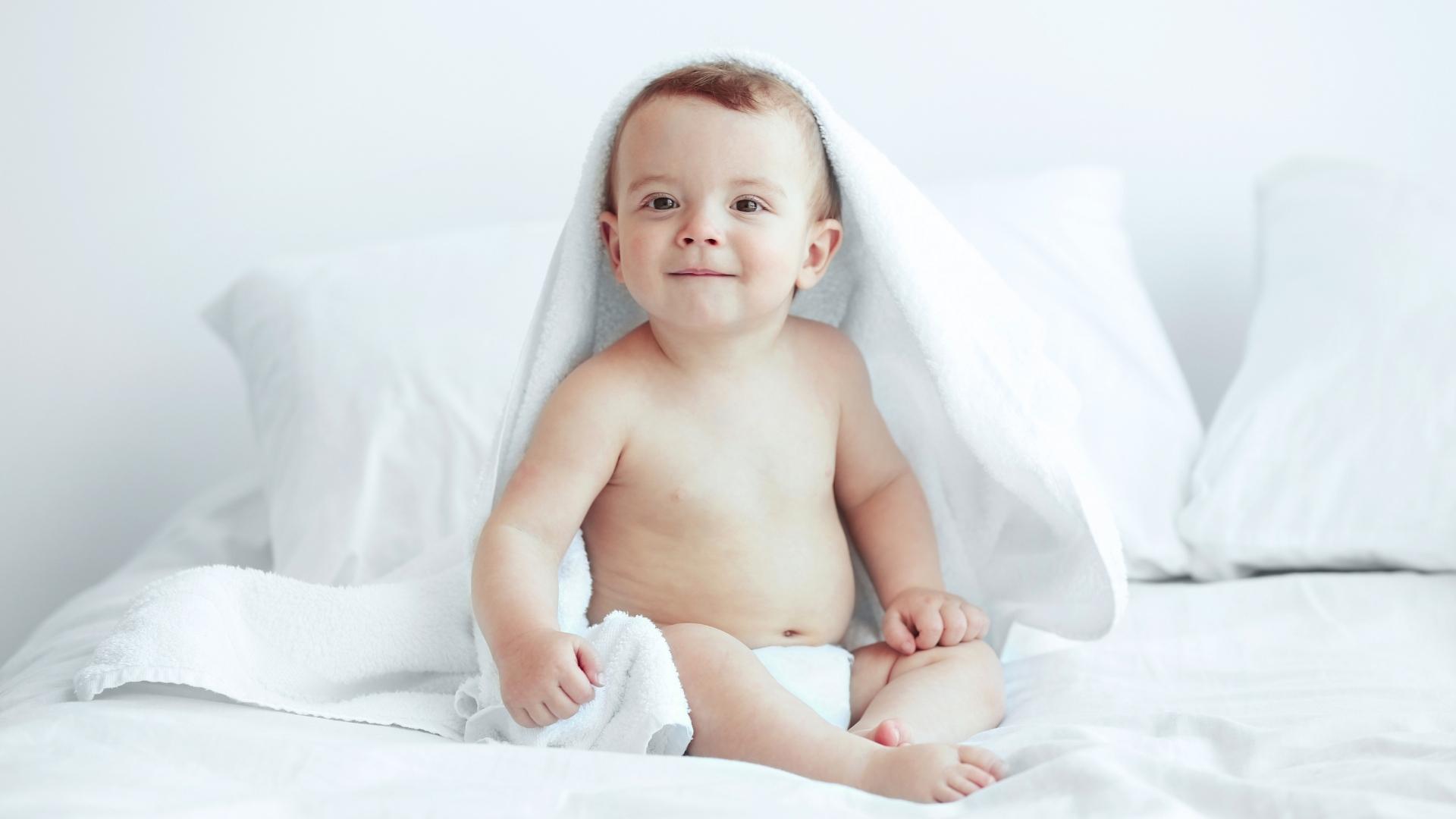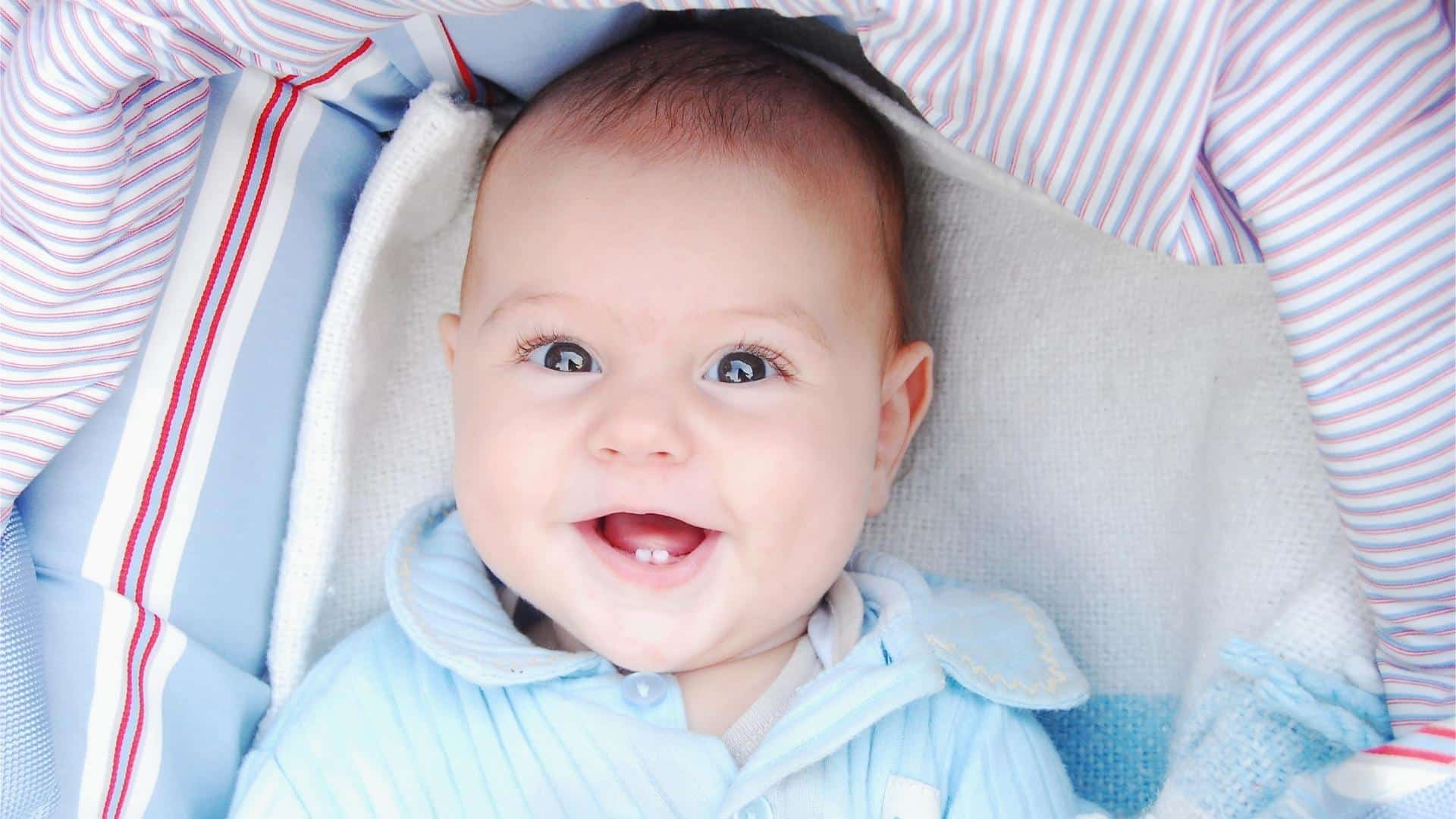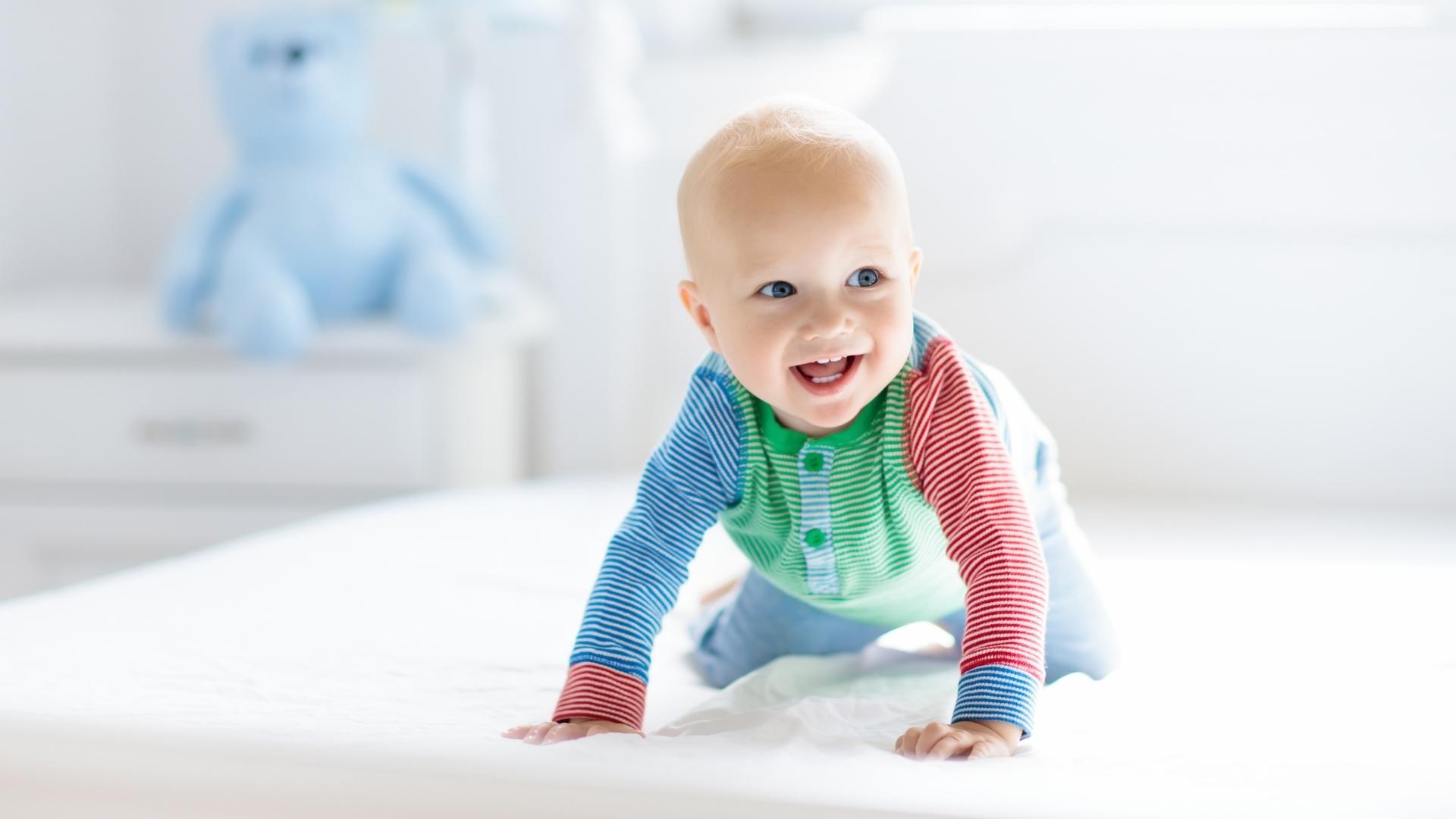Gross motor skills are one of the key parts of early childhood physical development. They allow children to participate in physical activities and achieve age-appropriate developmental milestones.
What Are Gross Motor Skills?
Gross motor skills are the practising of large muscle movements that children develop to perform everyday functions such as standing, walking, jumping and throwing.
What Are The Main Gross Motor Skills Children Learn?
The main gross motor skills that babies and young children learn are:
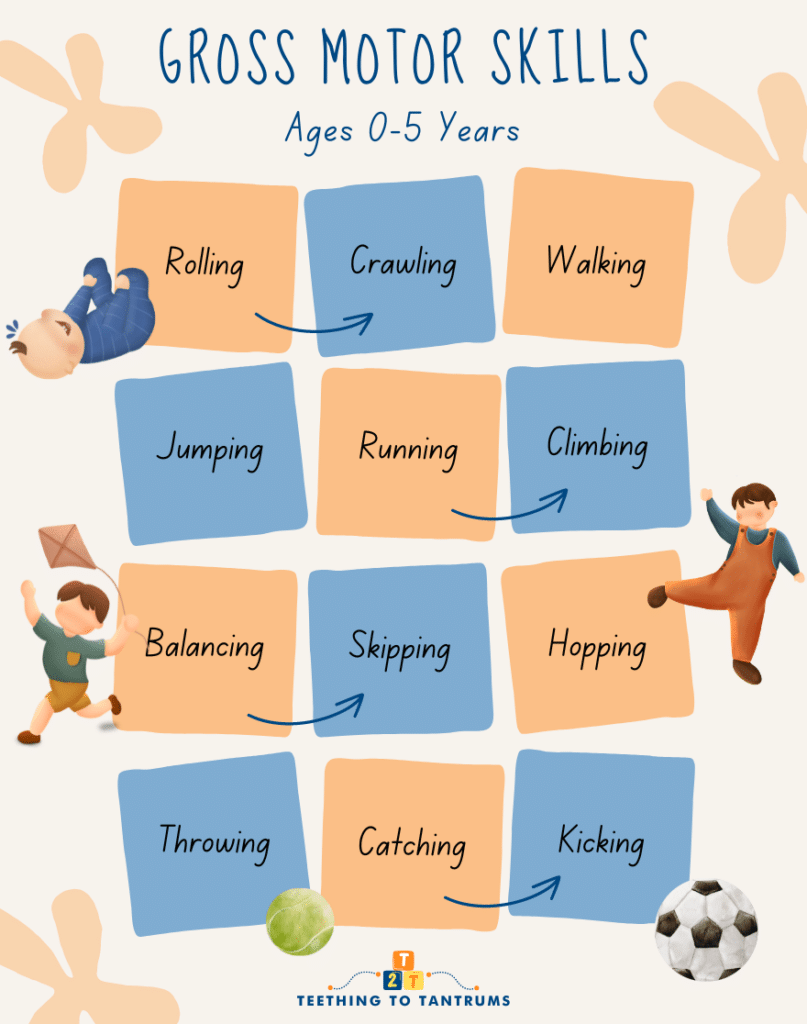
- Rolling
- Crawling
- Walking
- Jumping
- Running
- Climbing
- Balancing
- Skipping
- Hopping
- Throwing
- Catching
- Kicking
Why Are Gross Motor Skills Important?
Gross motor skills provide the foundation on which your child’s body movement and physical development are built.
They need these skills in order to learn to perform everyday tasks, move around their world, navigate different terrains, play sports, lift, carry, throw and catch objects, maintain good body posture and develop physical endurance.
In addition, gross motor skills are necessary for the successful development of your little one’s fine motor skills (smaller physical movements such as holding a pencil and writing their name).
Looking to get your little one to sleep quickly and effortlessly to ensure they are well-rested to develop and learn properly tomorrow? Check out my Bedtime and Nap Cheat Sheet and master the art of making daytime naps and bedtimes as seamless as possible.
A bedtime & nap cheat sheet so good your little one will ask you to put them to bed...
Laura Williams "This is a life saver! I'm so glad I downloaded your bedtime & nap cheat sheet. My little one actually asked me to put him to bed last night! Unbelievable! Thank you so much!"
Click Here For The FREE Cheat Sheet
Gross Motor Milestones By Age
Your baby won’t suddenly know how to climb the stairs… There are steps to learn before we can progress through any developmental journey.
Here’s what to expect from your little one throughout their gross motor skill development.
Newborn To 2 Months Gross Motor Milestones
- Begins to lift and hold their head up
- Starts to push up on their arms during tummy time
- Starts to bring their hands to their mouth
3-4 Months Gross Motor Milestones
- Can hold head up independently
- Can push up on elbows when on their tummy
- Will push down with legs when held to stand
- May start to roll over from back to tummy
- Will start to reach for objects
5 Months Gross Motor Milestones
- Will roll over from back to tummy
- May start rocking whilst on their tummy in preparation for crawling
- Can sit up when propped on a pillow for longer periods of time
- Can reach, grab and pull objects towards them
- Will move objects from one hand to the other
- Will raise head when pulled to a sitting position
6-8 Months Gross Motor Milestones
- Will learn to sit independently
- Can roll over both ways
- Will get onto hands and knees and rock forwards and backwards
- Will raise head and arms to lift while lying on their back
- May attempt to crawl forwards
- May be able to get into a sitting position from lying down (by 8 months)
9-11 Months Gross Motor Milestones
- Can get into a sitting position from lying down
- Will start crawling
- Will start pulling to stand
- Will start cruising around the furniture
- Will stand and maybe walk while holding one or two of your hands
- Will turn and twist while seating to reach and pick up an object
- Be able to crawl upstairs
- Some may take an independent step
- Will be able to move to sitting up from lying down and back again
1 Year Gross Motor Milestones
- May start to walk (don’t worry if they are not yet)
- Can travel between pieces of furniture efficiently
- Can bend down to pick up a toy while holding onto a piece of furniture
- Can roll a ball to you
- Will protect themselves with their hands when they fall
- Can walk while pushing a large object
12-14 Months Gross Motor Milestones
- Walk independently
- Will stand independently
- Can bend and pick up a small object and return to standing without falling over
15-18 Months Gross Motor Milestones
- Will start to run
- Will be able to tall kneel
- Will be able to kick a ball
- Will be able to come downstairs sliding on their bottom
- Will be able to go up and down stairs while holding your hand or rail
- Will start to be able to balance on ride-on toys
By 2 Years Gross Motor Milestones
- Can jump in one place
- Will be able to walk up and down stairs alone one step at a time
- Runs well
- Will be able to climb onto sofas and chairs and get down again
- Will be able to walk backwards
By 3 Years Gross Motor Milestones
- Can balance on one foot for a few seconds
- Will be able to jump forwards about 2 feet (60cm)
- Can walk on their tiptoes
- Can walk downstairs step by step without holding the rail
- Will start to throw a ball and maybe catch
- Manage to navigate a toddler slide
- Will be able to get on and off a ride-on toy independently
- Start to pedal a cycle toy
- Be able to jump off a step and land safely
By 4 Years Gross Motor Milestones
- Be able to pedal a cycle toy
- Be able to throw and catch a ball
- Will be able to jump forwards about 3 feet (90cm)
- Will hop on 1 foot for about 5 seconds
- Can run, swerve and stop effectively
- Will be able to jump over a small object
- Will throw a ball at a target
- Will start to gallop
- Can start to learn to swim
By 5 Years Gross Motor Milestones
- Can jump sideways
- Can kick a stationary ball in a straight line a fair distance
- Can stand on one foot for 10 seconds
- Can independently steer a cycle or pedal toy or bicycle with trainer wheels
- Can skip with a rope
- Can throw a ball at the ground and catch it when it bounces back
- Can walk and balance on a 2-inch beam
- Will incorporate gross motor skills in playing physical games
- Can run backwards quickly in a straight line
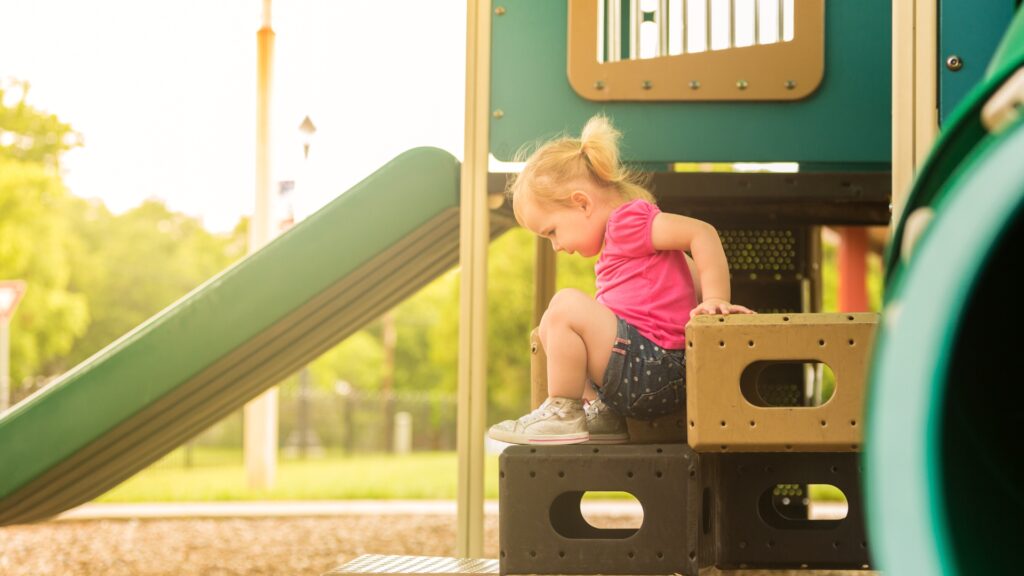
Gross Motor Activities For Infants
Providing opportunities for children to practise new skills is an incredibly important part of parenting.
So here are some ideas for infant activities that will boost their gross motor skills in the first 12 months of life:
- Tummy time
- Foot rattles
- Sitting activity bag
- Baby walkers
- Climbing stairs
- Tunnels
- Ball games
- Rocking and ride-on toys
- Dancing
- Build an obstacle course
- Push and pulling toys
Gross Motor Activities For Toddlers
Once the basics have been learnt, you can now provide your toddler with the opportunities to explore these amazing gross motor activities more and more:
- Dancing
- Action rhymes such as “Head, shoulders, knees and toes”
- Action games such as ‘Simon Says!’
- Bubble or balloon catching
- Hopping
- Pulling and pushing wagons
- Toddler slide
- Kicking ball games
- Rolling and catching a ball
- Throwing a bean bag
- Build an obstacle course
- Visit the local playground
- Play musical statues
- Indoor skittles
- Help with the cleaning
- Ride-on toys
Perfect for any new walker, this 3-in-1 ride-on toy from Radio Flyer will help your little one learn to walk, ride and develop their senses with the security of anti-tip technology and a handy storage compartment for their travel essentials! It truly is a value for money ride-on-toy!
Gross Motor Activities For Preschoolers
With coordination and balance developing at a rapid rate, here are some activities for preschoolers you can try to develop their gross motor skills even further.
- Tricycles, scooters and pedal cars
- Hopscotch
- Go swimming
- Paper plate frisbees
- See how far you can jump
- Throw bean bags at a target or into a bucket
- Climb a jungle gym
- Walk and balance a balloon on your head
- Musical chairs
- Hide and seek
- Visit the park
- Jump over a rope
- Adventure walks
- Try yoga together
- Use a balance beam
Designed with endless possibilities in mind, the boards of this beautiful balance beam can be flipped to create a route of varying textures and obstacles. Helping to promote muscular strength, unleash energy and improve concentration... This set will improve gross motor skills and confidence with every use!
Here’s a lovely video from the Department of Education to help your children develop their gross motor skills and find the balance between exploring new skills and being safe in a responsible way.
Frequently Asked Questions About Gross Motor Skills
Looking for more information about gross motor skills? Find answers to the most common questions here.
What Is The Difference Between Fine And Gross Motor Skills?
Gross motor skills involve using muscles to complete large motions such as crawling, walking, running and kicking.
On the other hand, fine motor skills involve ‘fine’ movements such as grasping or picking objects up between the finger and thumb.
NOTE: Gross and fine motor skills often work hand in hand and frequently need each other to work successfully.
What Is The Best Example Of A Gross Motor Skill?
The most obvious examples of gross motor skills in young children are sitting, crawling and walking.
What If Your Child Has Gross Motor Skill Delays Or Difficulties?
If your little one has gross motor skill delay or difficulties you should always seek expert advice to ensure there is no underlying cause.
Some children need a little extra help to get going with developing their gross motor skills and as parents, we need to ensure that we are offering the right opportunities for our little ones to develop as they should.
TOP TIP: Physical and occupational therapy can help if your child is showing signs of gross motor skill delay. These therapies will concentrate on the areas your little one is struggling with by showing you age-appropriate gross motor exercises and activities that will help with building strength and balance.
When To See A Doctor About Gross Motor Skill Concerns?
While your doctor will always check that your little one is reaching their developmental milestones during your regular visits…
If you notice your child’s ability to perform certain movements has changed or they can no longer do certain skills, then you should seek medical advice.
Need More Parenting Help?
- Download our FREE Bedtime & Nap Sleep Cheat Sheet. It’s a free, easy-to-use and proven formula designed for parents of 0-5 year olds to master the art of consistently undisturbed and restful sleep without the yelling, nagging or exhausting long-winded evenings.
- Check out our Parenting Toolbox. You’ll get access to expertly-chosen products that you can guarantee are the best for your little one and your wallet.
- Are you looking for personalized guidance to navigate the challenges of parenting? I offer 1-on-1 consultations to bring you tailored strategies and actionable advice to help support your child's growth and well-being with confidence.

A bedtime & nap cheat sheet so good your little one will ask you to put them to bed...
Laura Williams "This is a life saver! I'm so glad I downloaded your bedtime & nap cheat sheet. My little one actually asked me to put him to bed last night! Unbelievable! Thank you so much!"
Click Here For The FREE Cheat Sheet



